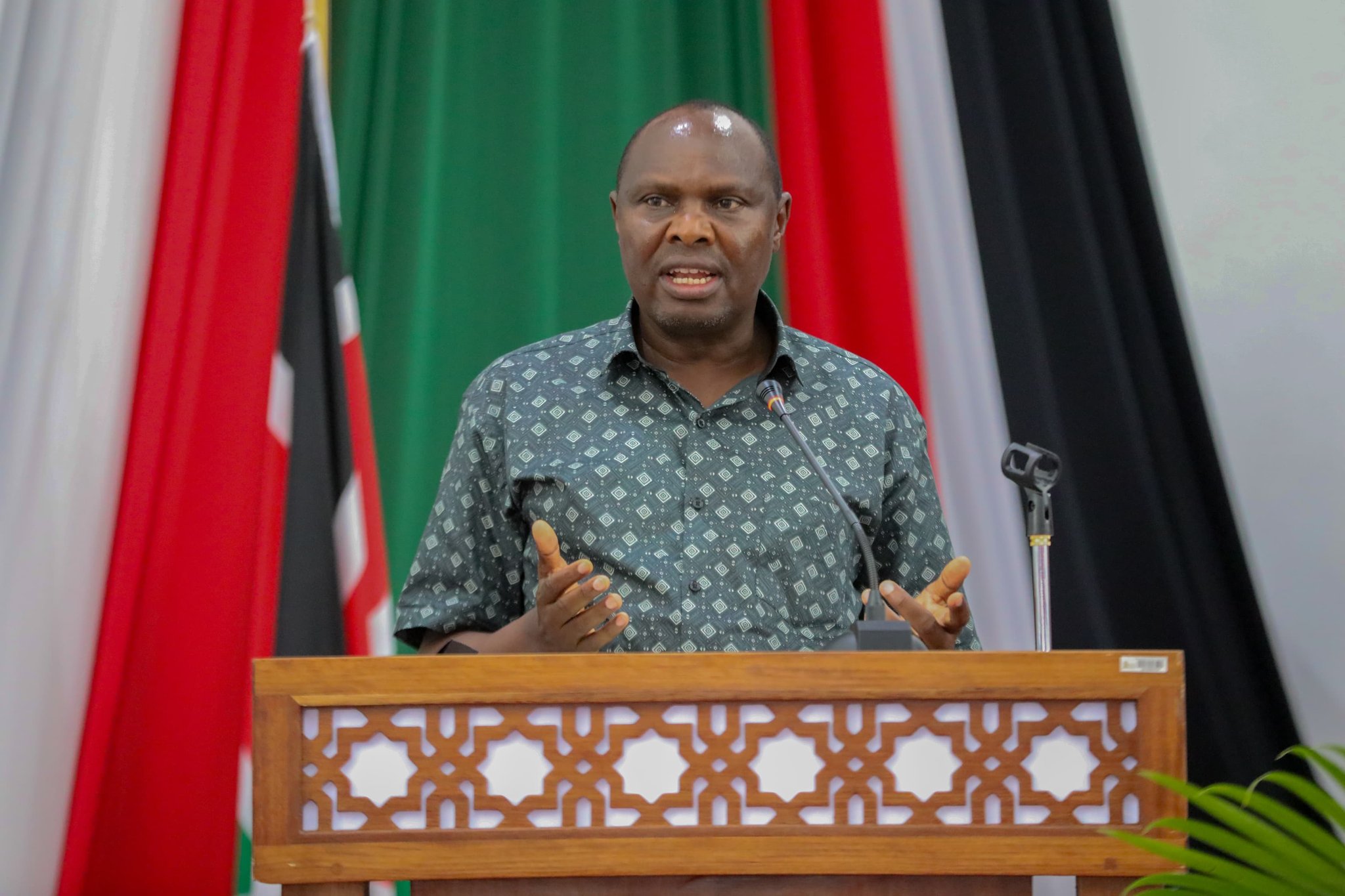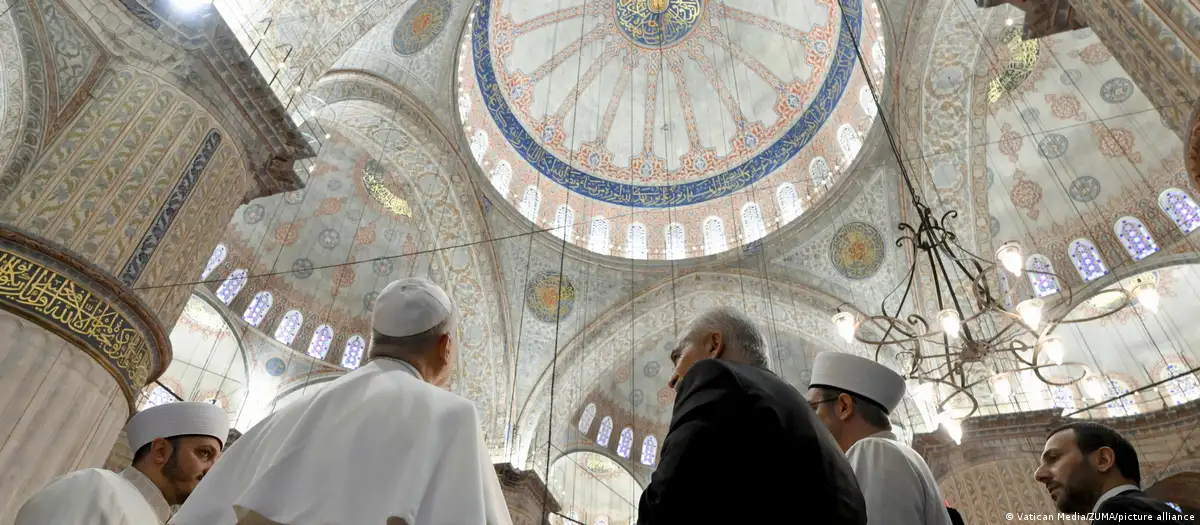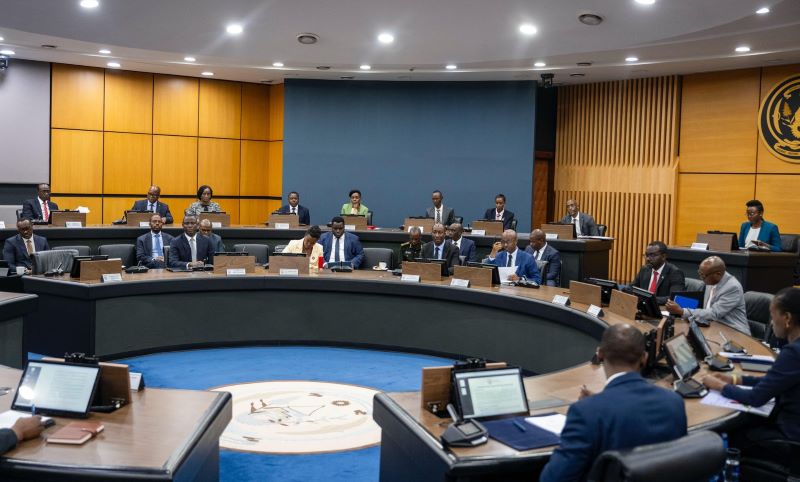Proposed Bills seek to place civil service under presidential control

At the centre of the proposals is the creation of a powerful role for Head of Public Service and Chief of Staff Felix Koskei, who would assume broad authority over hiring across the public sector, including teachers, county employees, parliamentary and judicial staff and officials in State corporations.
The Public Service Commission may soon find itself reporting indirectly to the President if proposed laws before the National Assembly are passed.
The Bills, the National Government Co-ordination Bill, 2023 and the Public Service Human Resource Management Bill, 2024, seek to place unprecedented control over civil service recruitment and management within the executive branch, consolidating power at State House.
More To Read
- Audit flags leadership vacuum at Garissa University since 2022
- Outgoing NCIC faces scrutiny over last-minute recruitment of 22 staff
- Kenya School of Government cancels hundreds of fake certificates in major crackdown
- High Court invalidates State corporation management guidelines limiting PSC
- Ruto appoints seven-member panel to recruit new Public Service Commission chairperson
- Head of Public Service Felix Koskei blasts independent commissions for high salaries, poor service delivery
At the centre of the proposals is the creation of a powerful role for Head of Public Service and Chief of Staff Felix Koskei, who would assume broad authority over hiring across the public sector, including teachers, county employees, parliamentary and judicial staff and officials in State corporations.
One of the clauses in the Public Service Human Resource Management Bill states, “The Cabinet Secretary, in consultation with the Public Service Commission, the County Public Service Boards, and the County Assembly Service Boards, shall develop regulations for the transfer of public service employees between the two levels of government and among county governments to promote efficiency, productivity, and cohesion.”
If enacted, the two Bills would give the Presidency indirect but wide-reaching control over civil servants and service delivery infrastructure across all 290 constituencies, including institutions previously considered independent, such as the Teachers Service Commission (TSC) and the Kenya Human Rights Commission.
The National Government Co-ordination Bill has undergone quiet changes since it was first introduced as the National Police Service (Amendment) Bill.
The latest draft goes far beyond policing, proposing new national government structures that critics argue would run parallel to, and undermine, county governments. Analysts say the Bill redefines the presidency’s role in managing the state and puts civil servants, governors, and independent bodies under tighter executive control.
Currently, Chapter 13 of the Constitution protects the independence of the Public Service Commission, which was established under Article 233(1) to oversee the recruitment, promotion, and discipline of public servants, free from political interference.
Under the new Bill, however, the President would appoint the Head of Public Service on recommendation from the PSC, but the position would remain at “the pleasure of the President.”
“The Head of the Public Service shall perform such other functions as may be assigned by the President,” reads the Bill.
Implications
This clause has wide-ranging implications for the management of the public service, with critics warning that it would expose civil servants to political influence. By placing decisions on appointments, promotions and transfers under someone answerable to the President, the Bills threaten the merit-based structure of Kenya’s public service.
The proposed law also seeks to formalise the Chief Administrative Secretary (CAS) positions, which courts had previously declared unconstitutional.
Another controversial provision would allow the national government to bypass Parliament and governors in service delivery.
“Where a county government has not decentralised its units… the national government may establish its own service delivery coordination units,” reads the Bill.
This would effectively enable the President to set up parallel government structures in counties, a move that undermines devolution. Chiefs, assistant chiefs and provincial administration officers would be rebranded as “national government administrative officers” tasked with coordinating civil servants and overseeing public projects.
Governors, already struggling with budgetary delays and overlapping responsibilities, could find themselves outranked by national officers embedded in their jurisdictions.
The Bill allows the President to assign duties, demand performance reports, and run the national government through coordination committees without seeking approval from the National Assembly or the Senate.
Article 234 of the Constitution gives the PSC the mandate to hire and discipline civil servants independently and forbids it from seconding staff to the President without consent. The new law appears to sidestep those safeguards by granting the Head of Public Service wide supervisory powers under presidential instruction.
The proposed “delivery units,” to be overseen by the Head of Public Service, resemble the parallel structures President Ruto helped run as Deputy President during the Uhuru Kenyatta administration — systems that were outside the purview of Cabinet and formal government agencies.
While government officials argue that the Bills are meant to streamline service delivery and enhance coordination, critics view them as part of a larger strategy to centralise control and reward political loyalists.
Kisumu Governor Anyang’ Nyong’o said the Ruto administration’s legislative onslaught threatens not just devolution, but the spirit of democratic governance.
“The truth is that the Ruto regime has decided to go back to the pre-devolution times of the Nyayo era,” Nyong’o said in a tweet.
“The 2010 Constitution is a hindrance to the Kenya Kwanza administration’s primitive accumulation schemes.”
At stake, observers say, is the balance of power between the Executive and the institutions meant to check it, including the PSC, TSC, independent commissions and county governments.
Top Stories Today













































